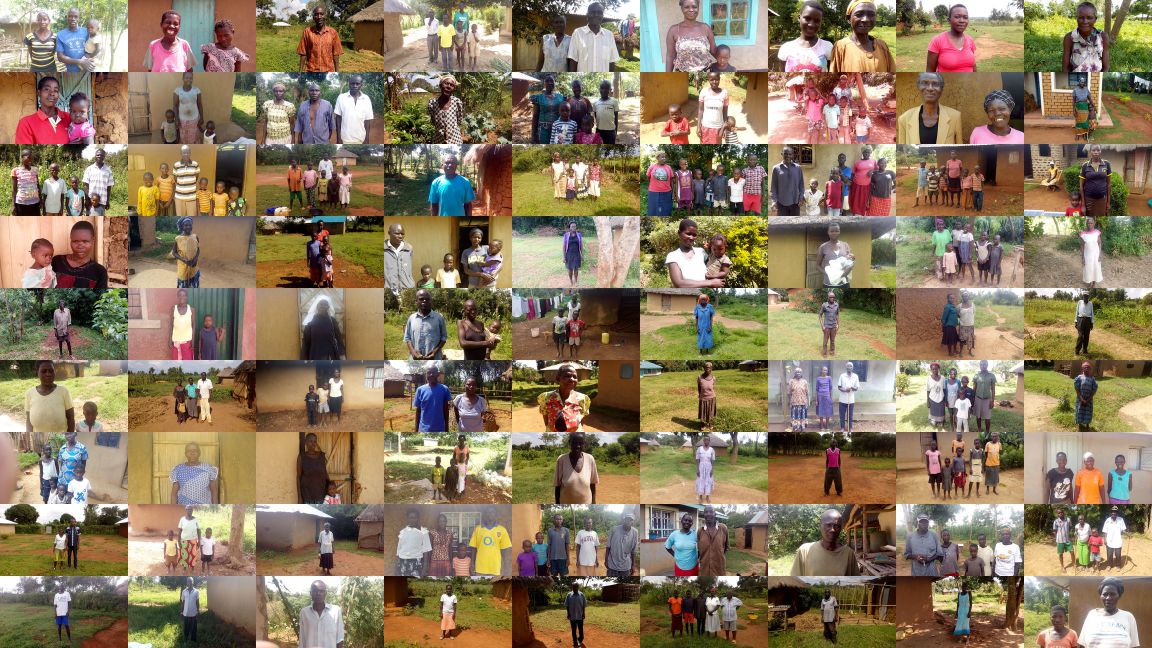 Unconditional Basic Income in Kenya, by Give Directly [1]
Unconditional Basic Income in Kenya, by Give Directly [1]
interview with Joe Huston, CFO at Give Directly New York
Give Directly is known for delivering cash transfers to the poorest country, mainly East Africa. Why did you suddenly start an unconditional basic income project instead – and what is different?
While we have done unconditional cash transfers for a while we saw the UBI debate spark up again. There were interesting claims made by both supporters:
– People receiving UBI…
… are more likely to escape abusive relationship
… are more likely to start businesses
and critics, who claimed:
– People receiving UBI…
… will stop working
… will “misspend” the money
We saw an opportunity to research those claims to find out, what would really happen once people receive unconditional cash for an extended period of time. We also wanted to ground the debate within the existing evidence of what we know already about how (non-UBI) cash transfers work.
The cash transfers we usually provide are one-off amounts or shorter-term payments. We have conducted and are conducting other cash transfer studies in Kenya, Uganda, and Rwanda, but the UBI project in Kenya is our longest term.
Who is in your research team?
Alan Krueger [2], Abhijit Banerjee [3], Tavneet Suri[4] and 2 of the Give directly co-founders: Paul Niehaus and
Michael Faye [5]
How is the study in Kenya structured?
- Universality and 2. Unconditionality
100 people in one village, that is the whole village, have started to receive an unconditional basic income on top of any governmental aid they might be entitled to. There are no conditions attached and it isn’t means-tested throughout the 12 years.
We work universally with whole villages. The villages are chosen because of their poverty levels. What sets our project apart from local government initiatives, is that we don’t focus on a certain demographic or group in need – everyone in the village receives the UBI, independent of their ability to work.
- Individuality
It is paid individually to every adult, plus to children above 18, whether or not they share a household or not. - Sufficiency
They will receive the Kenyan shilling equivalent of 23$/month for 12 years.
This is just above the food poverty level. The average daily of GiveDirectly’s typical recipients is the equivalent of $0.65 – we give them $0.75.
When the full study is up and running, we will pay ubi to 6,000 people in 40 villages
Control groups
We have 2 control groups:
- 10,000 in 80 villages who will receive the exact same ubi, but only for 2 years. Our purpose is to find out if there are different effects from short and long term UBI?
- 100 villages with no cash transfers on top of usual governmental entitlements.
Where does the money come from?
It is entirely crowdfounded from a mix of individuals, smaller and larger foundations. They pay anything from 23$/month to single donations >1 mio.
We larger recurring donors to pledge their gift in formal agreements, and we hope smaller donors will similarly keep up their payments. The bulk of our donors is from the US, but the reach is worldwide.
What do your donors like about unconditional basic income as opposed to traditional developmental aid programmes?
There are many reasons:
- the strong evidence provided that cash transfers are efficient: there have been 165 distinct studies from all over the world.
- donors feel strongly that human dignity as the human right needs to be protected by their donations, so they want to enable choice and give the receipients control over their budget
Will UBI in Kenya be self-sustainable in the long-term, without foreign donors?
A lot of the social protection models for poorer countries work like a kind of fusion, foreign donors provide an initial cash flow, then slowly phase out. The locally available tax options are different to the ones in the US, for example. Budget creativity is needed!
For example, the Indian government estimated they could replace existing subsidy programs with a modest UBI that could dramatically reduce poverty.
How does the collaboration with the Kenyan government work?
We meet once a year, share information and feed the government’s interests into our research questions. Their focus currently is on a universal pension scheme they are planning to install.
There is a lot of societal support for money given to „vulnerable“ people or those with „labour constraints“. The UBI study will show the effects on all people. At present it is not taking a central part in the debate yet.
What are the arguments against your UBI project in Kenya?
Most critics would have prefered we tested more alternatives, like for instance another control group which is means-tested or one that is in-kind instead of cash. They would like more data. We would have loved to do additional tests, but given limited funding we have had to prioritize funding the most important comparison groups.
Which of the many pilot projects globally is Give Directly watching closely?
I am personally very excited that there are so many pilot projects running parallel everywhere now, and that we see new ones starting so regularly. It means that there will be sufficient data collected soon.
We also look forward to the project in Ontario, which sounds very interesting and well-planned.
Criteria met:
- Universality – yes
- Individuality – yes
- Unconditionality – yes
- Sufficiency – yes
How many people benefit: 6,000 for 12 years
Joe Huston, CFO at Give Directly was interviewed by Manja Taylor on 22nd Sep
Notes:
